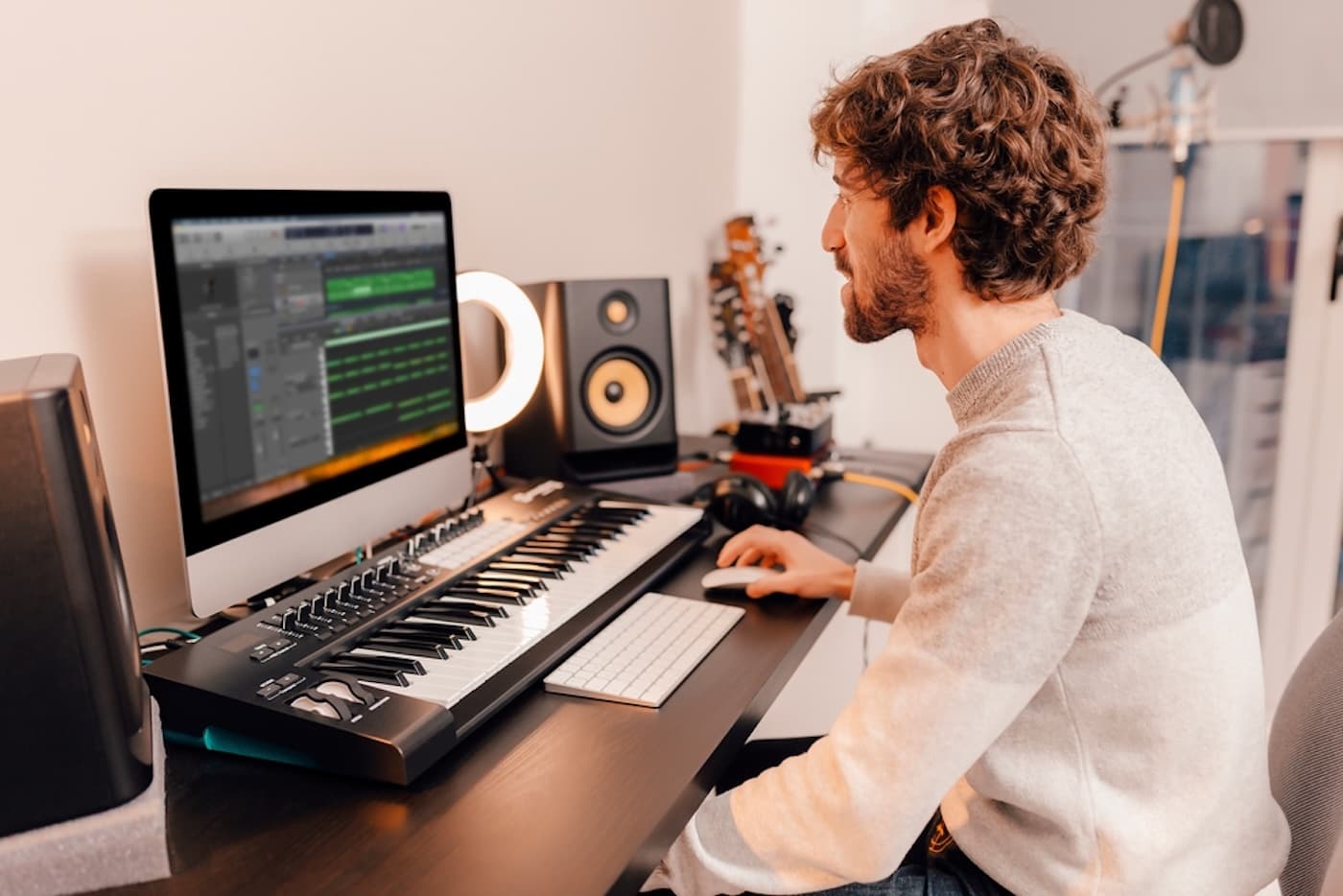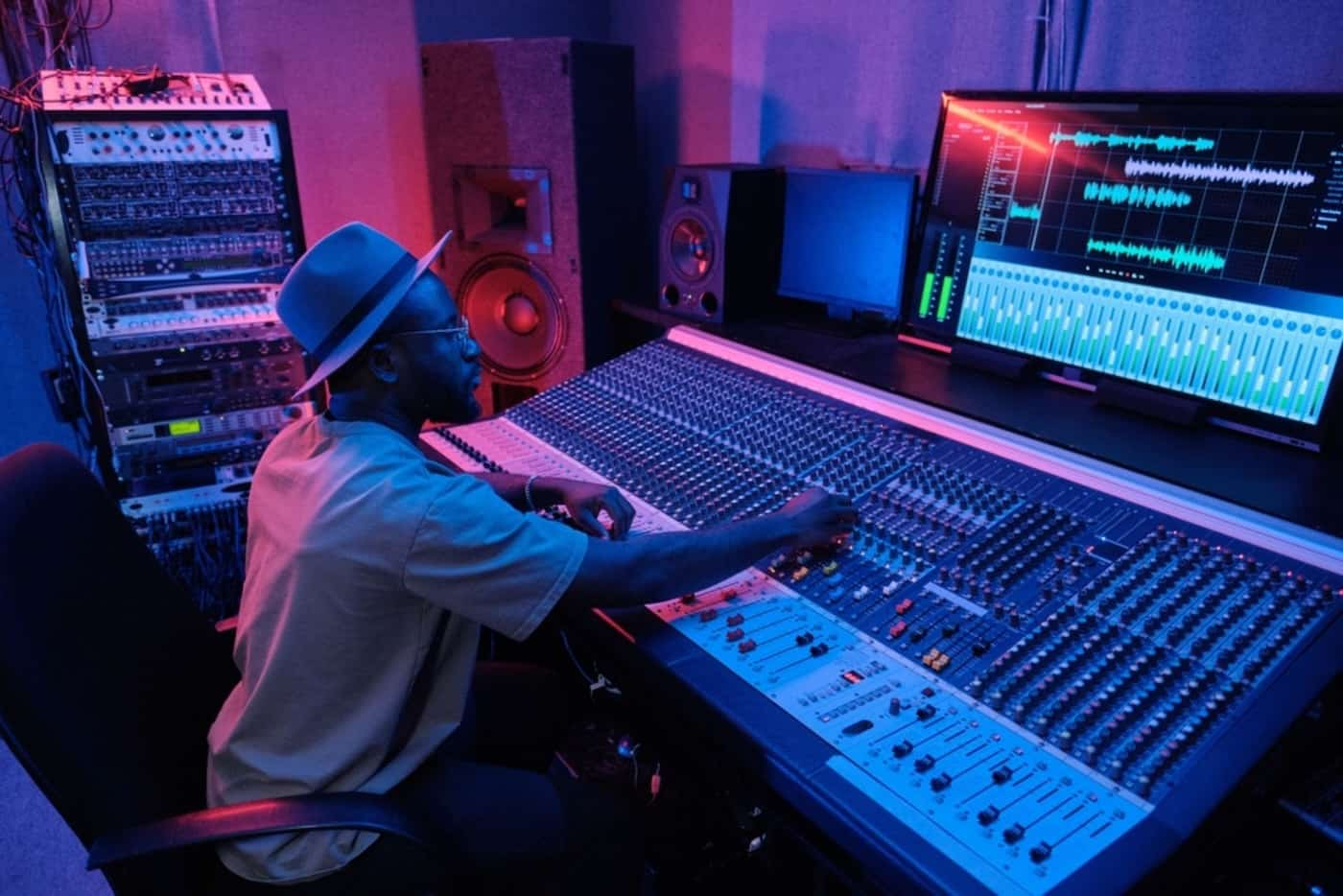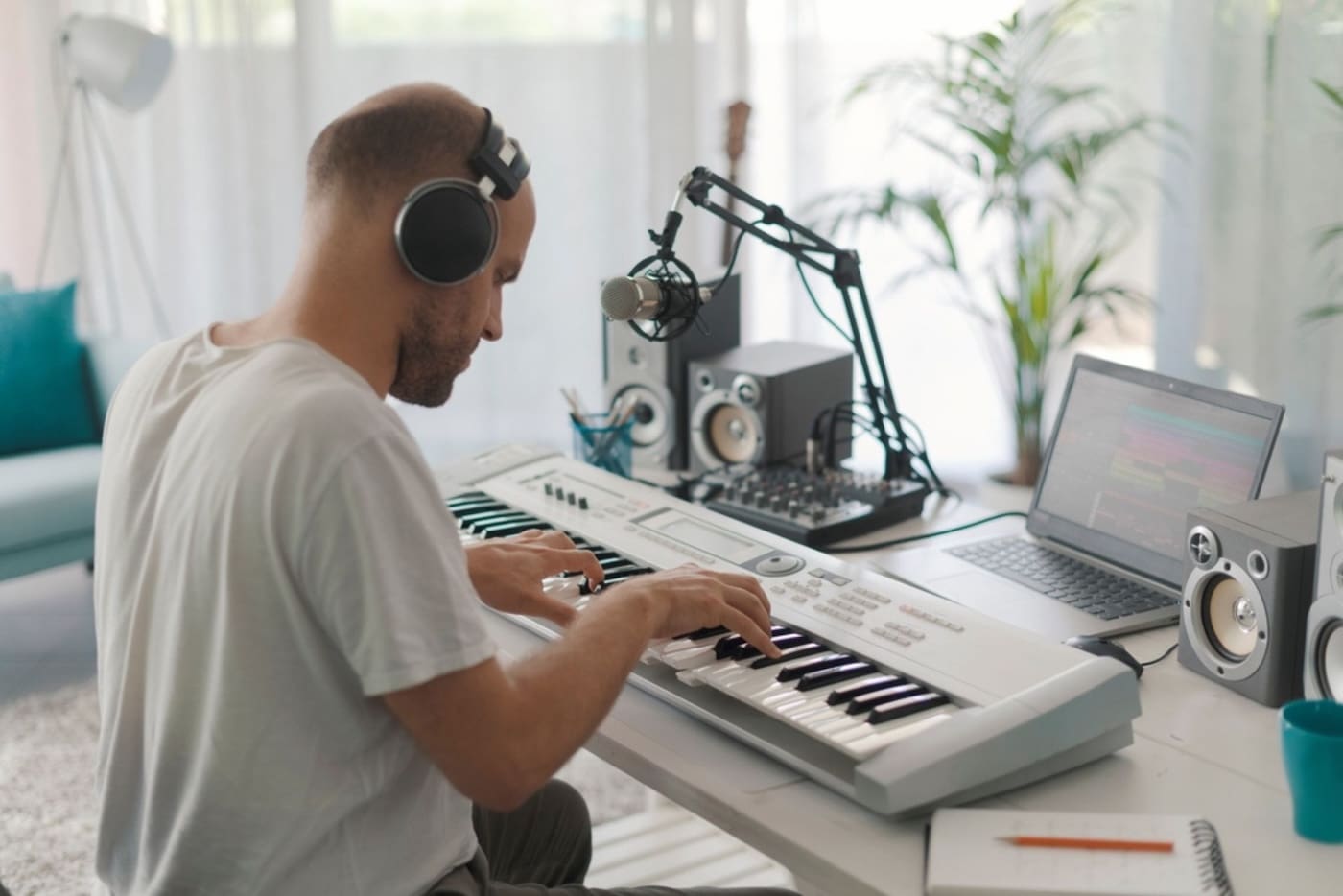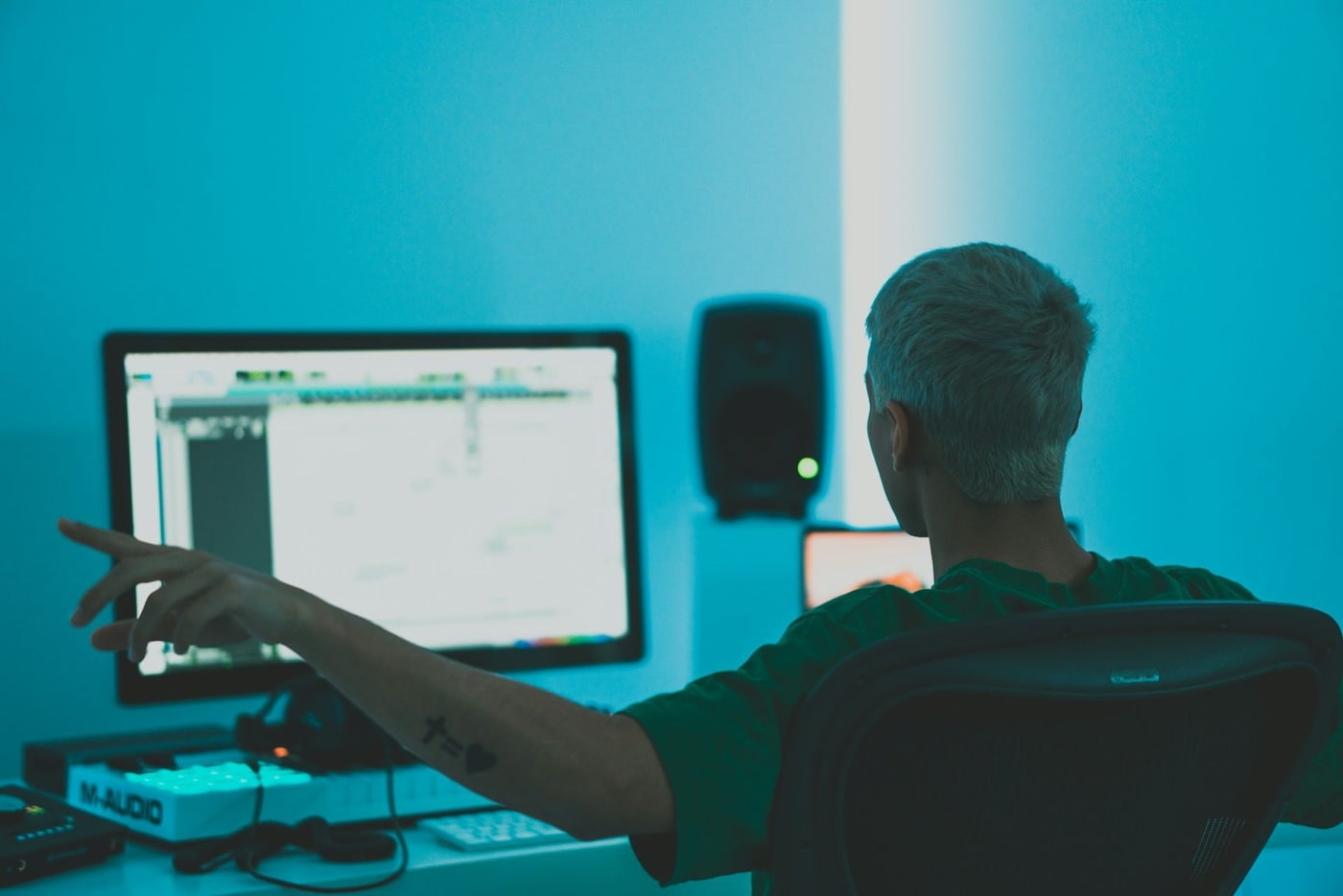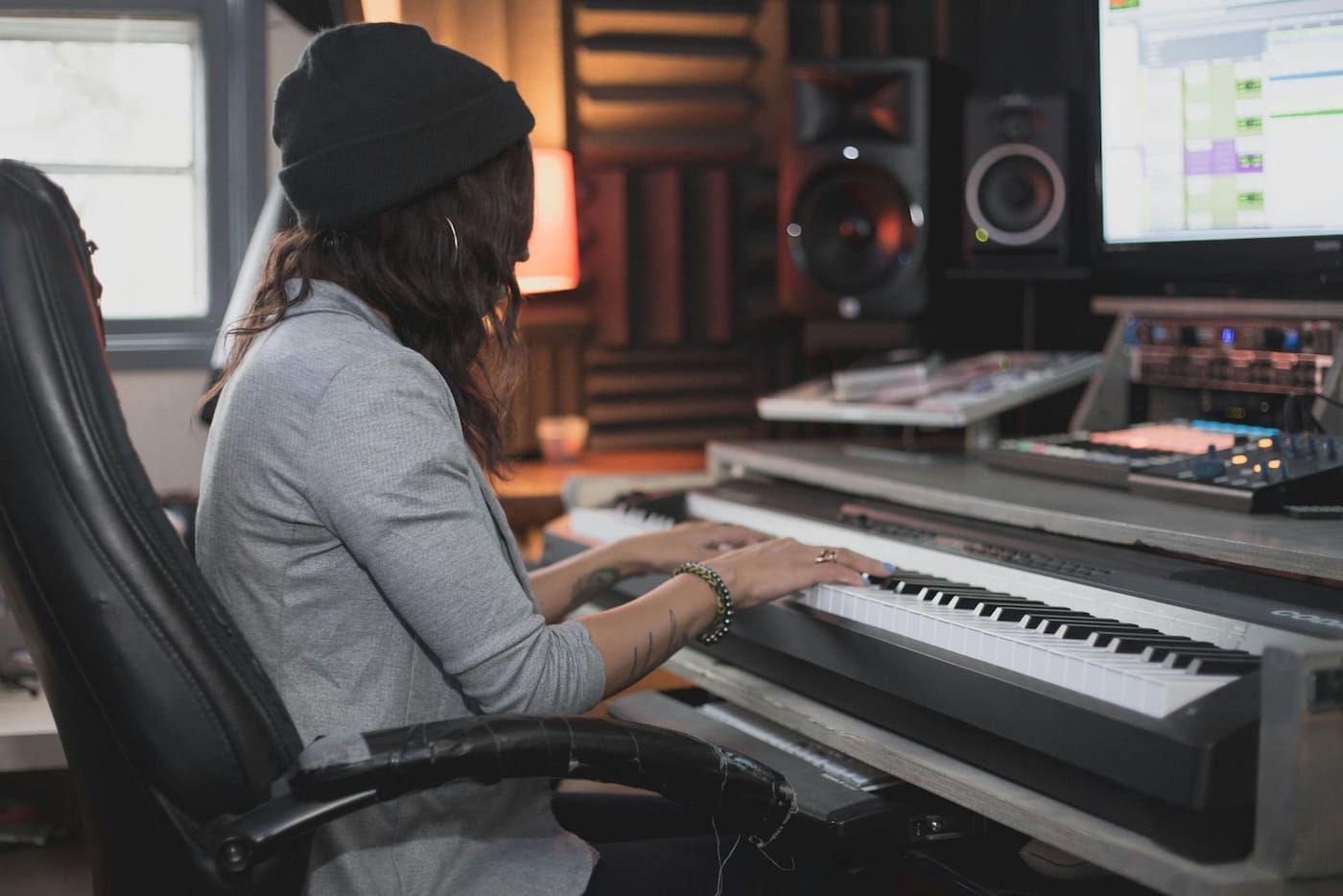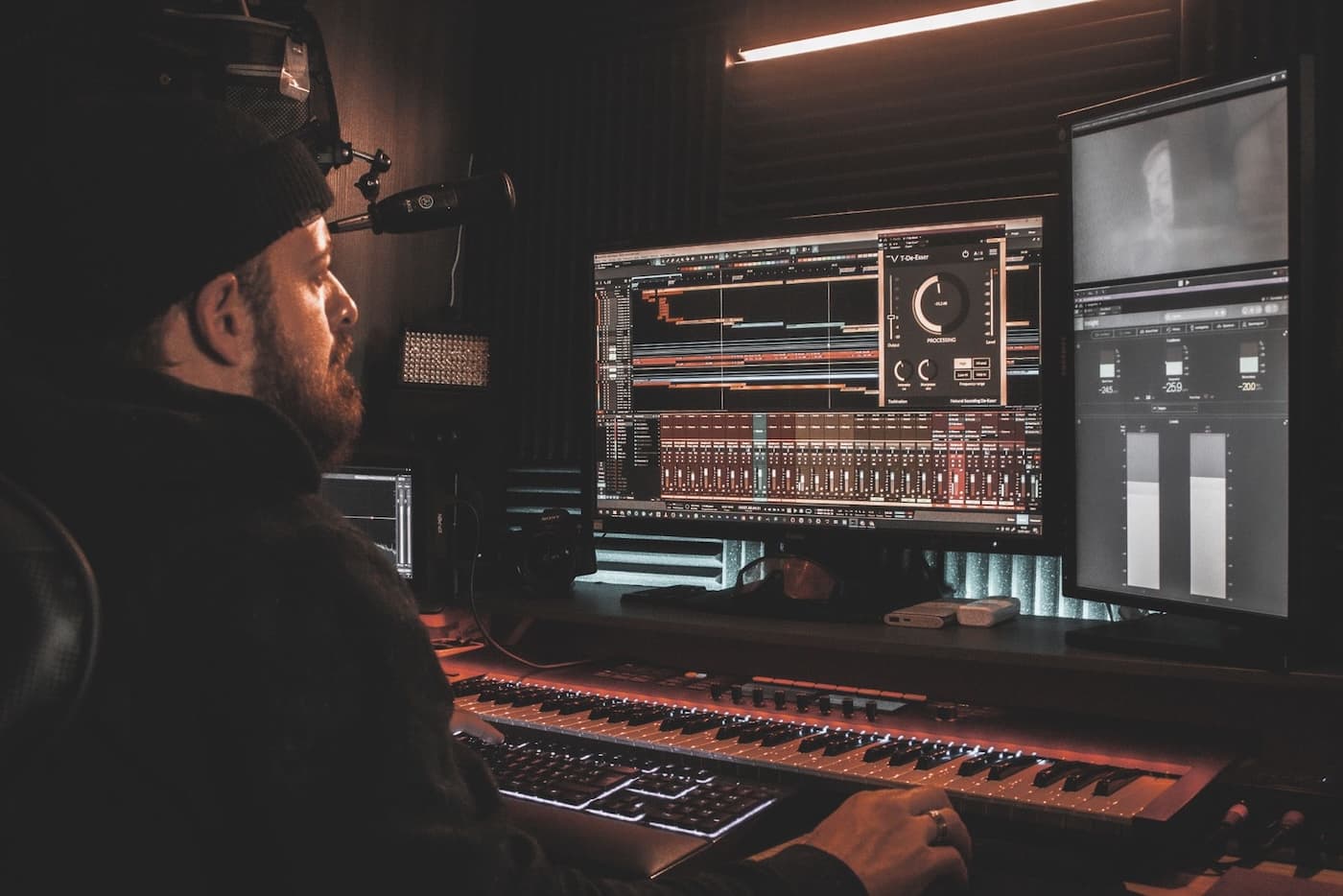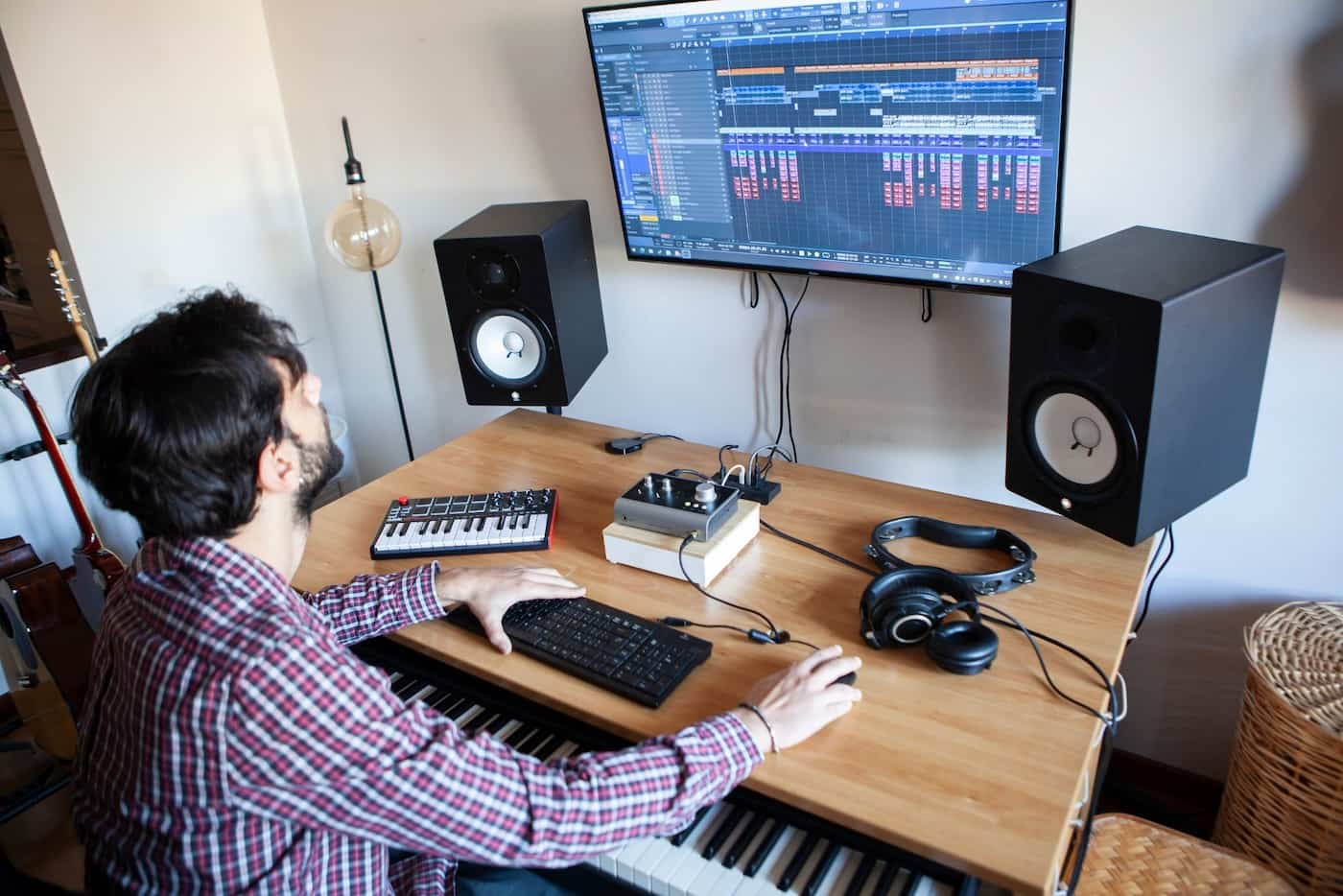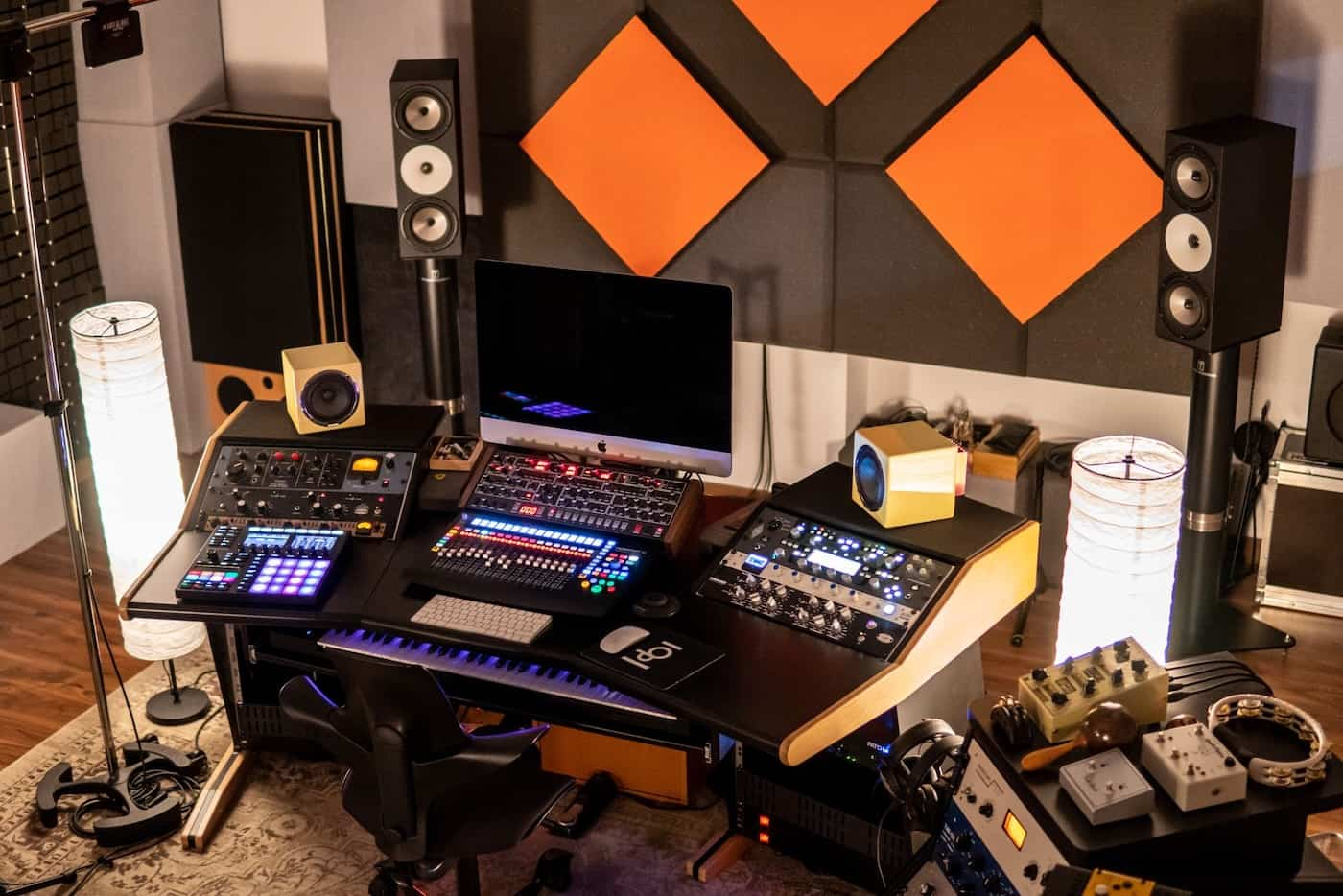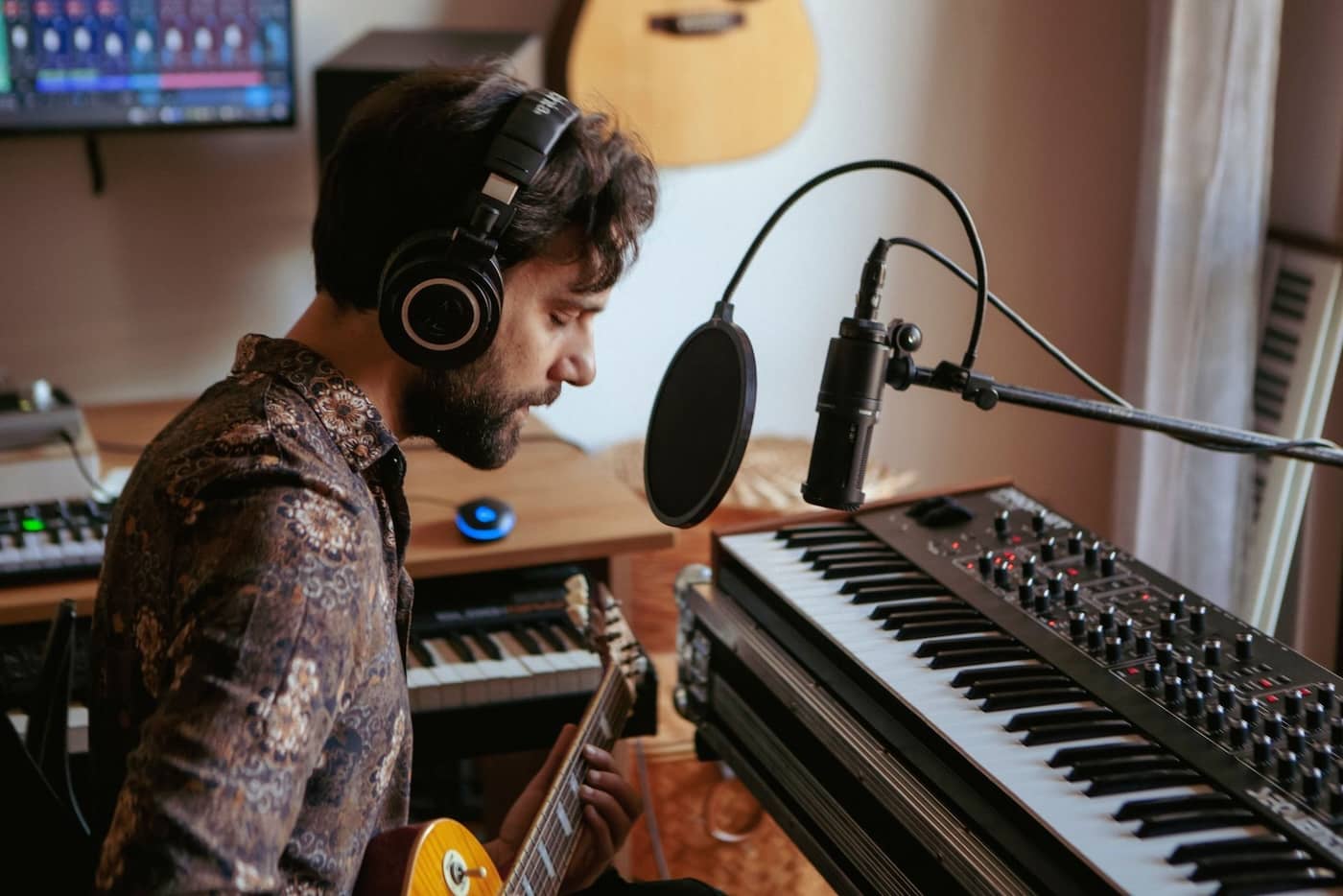Music production is a complex process that draws on a series of interrelated skills to create a polished mix.
Learning how to mix music is a fundamental skill every producer needs to know, with numerous user-friendly tools available.
Read on for a breakdown of the mixing process, along with recommended tools and resources to enhance your mixing skills.
Get Early Access
To Promo Hype
What Is Mixing In Music?
Mixing music, also known as audio mixing, is the process of balancing and editing multiple audio tracks to create a balanced and polished sound.
A core aspect of making music, the audio mixing process ensures that drums, vocals, and instruments all complement each other in the song.
This involves balancing audio levels across all audio files to ensure they play at the desired volume without overlapping or drowning one another.
Mixing in music also prevents frequencies from clashing, as well as adding effects to enhance their quality and tone.
It’s a fundamental aspect of what music producers do to deliver a harmonious blend that adheres to a distinct sense of style.
Key Elements Of Mixing Music
If you’re learning how to become a music producer, a grasp of the key elements and processes involved in mixing is essential.
Here’s a brief overview of the processes you’ll need to implement when you start mixing music:
- Input levels: Also referred to as gain staging, input levels relate to the volume levels for all elements used within a track.
- EQing: EQing refers to the manipulation and editing of the track’s equalizer settings across a range of frequency levels.
- Panning: Producers use panning to alter the placement of sounds within the stereo spectrum, and it can help prevent instruments from clashing.
- Pitch correction: If elements are in a different key, pitch correction allows these elements to be modified to fit within a song’s key.
- Dynamics and effects: Dynamic mixing tools refine the volume and other factors with more nuance, further enhanced with effects.
We’ll break down each of these elements in detail and explain how they’re used to create a professional mix for your own music.
Read more: Find out how to submit music to radio stations.
Difference Between Mixing & Mastering
Understanding the difference between mixing and mastering is essential for developing a streamlined music production process.
The most significant difference is when each process occurs in the workflow, with mixing an ongoing process throughout production.
Most producers mix elements as they go, while the mastering stage is implemented to make final adjustments, preparing the music for release.
While record labels often employ a dedicated mastering engineer, it’s not uncommon for producers to incorporate this final stage into their process.
Essential Gear For Mixing Music
There’s an abundance of options for mixing music and creating tracks that match what the music industry has to offer.
Here’s a breakdown of the essential gear you’ll need to get started mixing your audio tracks:
- Laptop/computer: A computer provides the brains of your process, so make sure it matches the minimum specification requirements of your chosen software.
- Digital audio workstation: The best DAWs include all the necessary tools for mixing, with free versions, such as Audacity, available for those on a budget.
- Audio interface: An audio interface is vital for the recording process, capturing acoustic instruments and background vocals to use in your own song.
- Headphones/monitor speakers: Blending audio elements and individual tracks requires high-quality headphones or monitor speakers with a balanced response.
- MIDI controller: Using a MIDI controller to map knobs and sliders from VST plugins streamlines the process and creates a more engaging, tactile experience.
You can also explore dedicated mixing tools, such as IK Multimedia Tracks 6, which offer robust tools for the entire mixing process.
Join the Promo Hype Community.
How to Mix Music in 2025: Step-by-Step
Whatever your preferred style of music, the general approach to mixing songs remains largely the same.
Follow these ten steps to ensure your process covers the most important elements that deliver a good mix:
Step 1: Develop An Ear For Music
Producing exceptional-sounding music requires developing an ear for tone, pitch, chords, rhythms, and other song elements.
There are steps you can take to develop a musical ear, starting with active listening and focusing on these sounds.
Take the time to identify distinct patterns and pay attention to how each element uses effects to separate itself in the mix.
You begin to notice certain techniques in music that achieve a professional sound that you can replicate in your own music.
Step 2: Build An Audio Mixing Setup
Whether you’re building a home recording studio or mixing on a laptop, a familiarity with your tools is essential.
Your setup should be optimized for your style of music, with the necessary plugins and tools to achieve the desired sound.
Investing in high-quality headphones to properly assess mixes is also important, as is a reliable audio interface for the recording process.
You can start with budget-friendly equipment and upgrade to professional tools as your production skills develop.
Step 3: Organize Your Mixing Session
Organization is the key to successful mixing, particularly when managing multiple audio tracks across an entire album.
The best music production equipment features file management tools that allow you to tag your drum track and other elements.
Using a standardized approach to naming your audio files makes sense, so you can locate what you need as quickly as possible.
Step 4: Listen To The Rough Mix
Most producers begin with a rough mix before fine-tuning each element, which is a preliminary version of the song.
Serving as a first draft, the rough mix offers many insights into the overall song structure and the desired sound.
It can also help with identifying specific issues that need to be addressed, guiding the project to the final mixing stage.
The rough mix also provides basic level balance, panning, and simple effects from which the producer can develop the overall style.
Get Early Access
To Promo Hype
Step 5: Create A Song Structure
Based on the rough version, music producers can then create a clear structure of the song as a template for their workflow.
This song structure typically includes verses and choruses, with intros, bridges, and outros also commonly included.
Each of these structural elements can then be addressed separately, with well-balanced transitions and much-needed variation.
This allows the producer to then arrange musical elements correctly and perform a mixdown that delivers balanced results.
Step 6: Adjust Input Levels & EQ
With the structure clarified, it’s time to begin adjusting the input levels of the various elements as part of the gain staging process.
This step encompasses everything from mixing vocals and instruments to controlling louder and quieter components and preventing clashes.
Altering the input levels is complemented by EQing, which addresses specific frequency ranges of song elements.
For example, EQing for hi-hats will focus on high-end frequencies, while kick drums and basslines are oriented around low frequencies.
You can research the best music producers of all time and see how they approach the process for level and EQ adjustments.
Step 7: Use The Stereo Field For Instruments
One of the most effective processes for creating rich and spacious music is the stereo field, which refers to the separation between the left and right channels.
By separating sounds or panning them across channels, tracks can be produced with increased balance and depth.
Digital audio workstations include dedicated stereo field tools, such as Logic Pro’s Tremolo, which deliver results with minimal effort.
Stereo field manipulation is also effective for separating elements with clashing frequencies, allowing them to breathe more freely in the mix.
Step 8: Use Compression To Control Dynamics
While adjusting input levels is an effective way to enhance individual tracks, controlling dynamics further improves their sound quality.
Tools like audio compression can be used to modify a sound’s characteristics throughout its duration, emphasizing dynamic differences.
Likewise, using a limiter on individual tracks or grouped tracks will ensure they sound full and defined without excessive loudness.
These techniques can be applied throughout the production pipeline and are frequently used in the final mastering stage.
Learn more: Everything you need to know about MIDI.
Step 9: Add Effects To Create Depth
Music production software offers a wide range of effects that can be applied to individual song elements or across the mix.
There are several excellent effects that can heighten the stereo field, including reverb, panning, and chorus.
Additional effects, such as flangers and distortion, can be applied on a more limited basis to achieve a distinct style.
There are thousands of free VST plugins available, covering a wide range of effects and offering compatibility with most DAWs.
Step 10: Prepare For Mastering
The final step in mixing is preparing the track for mastering, a crucial aspect of production that enables the creation of professional music.
Check for any errors, such as distortion, clipping, or popping, and address these while ensuring enough headroom remains.
Once you’ve removed limiters and other bus processing, you can export the file in the correct format requested by the mastering engineer.
Top 5 Most Common Mixing Mistakes To Avoid
Learning the process of mixing great tracks can be daunting for beginners, with mistakes that newcomers often make.
Here are some of the most common obstacles and challenges to be aware of when making mixing decisions:
- Unfamiliarity with basic music theory: A lack of understanding of basic music theory, such as key, can lead to issues when performing pitch correction and other processes.
- A lack of headroom: When sounds exceed their peak volume levels, distortion and clipping occur, which is exacerbated when insufficient headroom is present.
- Excessive use of compression: While compression is an excellent tool for balancing sounds, it’s often overused by hobbyist producers.
- Clipping due to poor gain staging: Improper gain staging can create unpleasant sounds, resulting in clipping and distortion.
- Failure to use reference tracks: Using reference tracks helps to establish a framework for an overall sound that can be lacking when overlooked.
By paying close attention to these factors when working on tracks, you can ensure your music avoids these common issues.
Recommended reading: Discover the top 10 record labels looking for artists.
3 Tips For Mixing Music
There’s an abundance of resources and information online providing in-depth music production tips for up-and-coming producers.
Here are three ways you can improve your workflow and develop a better understanding of the process:
- Use free tutorials on YouTube: YouTube is a rich repository of information on mixing, with in-depth tutorials covering all the processes outlined in this article.
- Sign up for a music production course: If you have more time and are willing to invest in your education, the best music production courses break down concepts into separate lessons.
- Attend a dedicated music production school: For those who are serious about a music career, the best music production schools will train you to be a professional.
You can search for tutorials and courses dedicated to your preferred music genre to discover new tools and techniques that deliver results.
Distribute & Promote Your Music With Promo Hype
Becoming a successful independent artist requires building a loyal fan base and developing a strong presence on streaming platforms.
By becoming a Promo Hype member, artists and producers can access a range of features, including:
- Instant distribution on the major streaming platforms: Great music deserves a large audience, and Promo Hype distributes on Spotify, Amazon Music, TIDAL, Apple Music, and more.
- Access to robust promotional tools and resources: With the Promo Hype Promotional Toolkit, producers can target their core audience with quality marketing campaigns.
- A shared knowledge pool in the Promo Hype Community: Whether you’re learning music theory for producers or looking for collaborators, Promo Hype’s Community can help.
With deep insights into performance to help drive your career, Promo Hype is a powerful tool for producers building a brand.
Summary
The fundamental role of a music producer is to mix the various elements of a song to ensure they sound their best.
By mastering the concepts outlined in this guide, producers can refine their approach to mixing and explore creative options.
As your experience develops, you can explore other tools and processes used by professional mix engineers in your workflow.
